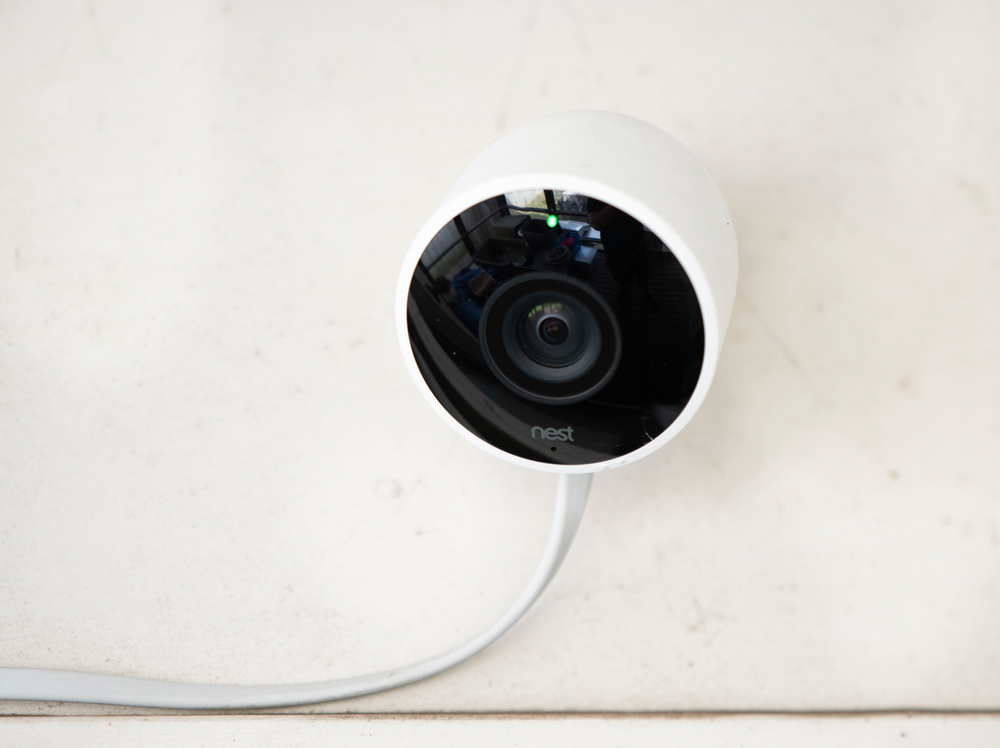Medical Guardian Review: Features and Design
The Medical Guardian is a tiny device that measures about three inches and weighs only over a pound. This makes it a little thinner and lighter than its closest rivals. The device is available in white, silver, or black finish. It also has a water-resistance rating and can also be used in the shower. But we would not recommend you to go swimming with it. The device also has a non-removable battery rated to last more than four days before needing a charge. The device's front has a pair of microphones, a noise-canceling speaker, and a backlit call button. The call button goes blue when there is an emergency call, flashes blue and red while charging, goes red when you have to charge the battery, and goes solid red when it is completely charged.
We found that users can wear the device around their necks during our Medical Guardian review by utilizing the magnetic lanyard. This is attached to a clip located at the top of the equipment. You can also remove the lanyard and the clip and wear it on the belt by utilizing the clip present in the box. The device utilizes the cellular network of Verizon to connect the user to an around-the-clock emergency response center when the call button is pressed. It also has Wi-Fi and GPS radios to assist emergency responders in pinpointing their exact situation. The Mini Guardian does not give much in any extra services. It does not have a mobile app and GPS tracking. But, the device does have a Customer Portal which users can utilize to add contacts to the Care Circle.
This is a network of family and friends that any emergency response agent can contact at the behest of users. Pricing for the device is among the costliest that we have experienced for any mobile alert device. The base cost of about $125 is a lot more expensive than its prominent rivals, such as the Bay Alarm Medical Help Button, which costs eighty dollars, and the GreatCall Lively Mobile Plus, which costs fifty dollars. The monthly subscription of forty dollars is also more than its rivals. For instance, Bay Alarm Medical and Great Call charge $25 per month for the basic subscription. But, users can save more than $35 on the device's subscription if they pay for a full year at the start. The fall detections cost an extra nine dollars per month. Users can also pay an extra seven dollars per month for a Protection Plan to replace the equipment if stolen, lost, or damaged.
Medical Guardian Review: Performance
Our Medical Guardian review found that the device was ready to go as soon as we took it out of the box. But users should give it a complete charge of a couple of hours before starting to use it. To test the response times of the medical alert button, we calculated the times that it takes for the live agent to appear after the Call button is used. The device gave good times. The average response time was under thirty seconds. It was better than the MobileHelp Solo, the Kelsi On-the-Go, and the Bay Alarm's Help button, which went up to fifty seconds. But it could not match the speed of the GreatCall Lively Mobile Plus, which had a response time of under sixteen seconds. The audio communication was quite loud and clean in testing. The emergency response agents were very professional and friendly.
Conclusion
You may be wanting to reach out to someone in the Care Circle or want emergency help. In each scenario, the Medical Guardian reviews well. This small device is one of the tinier medical alert buttons present on the market. It gave good response times during testing but is a little expensive than its rivals. The GreatCall Lively Mobile Plus also has a small form factor. But it is also less pricey than this device, gives better response times, and has more features than urgent care services and a mobile application that allows the caregivers to monitor user activity and find out their situation on a map in real-time.


